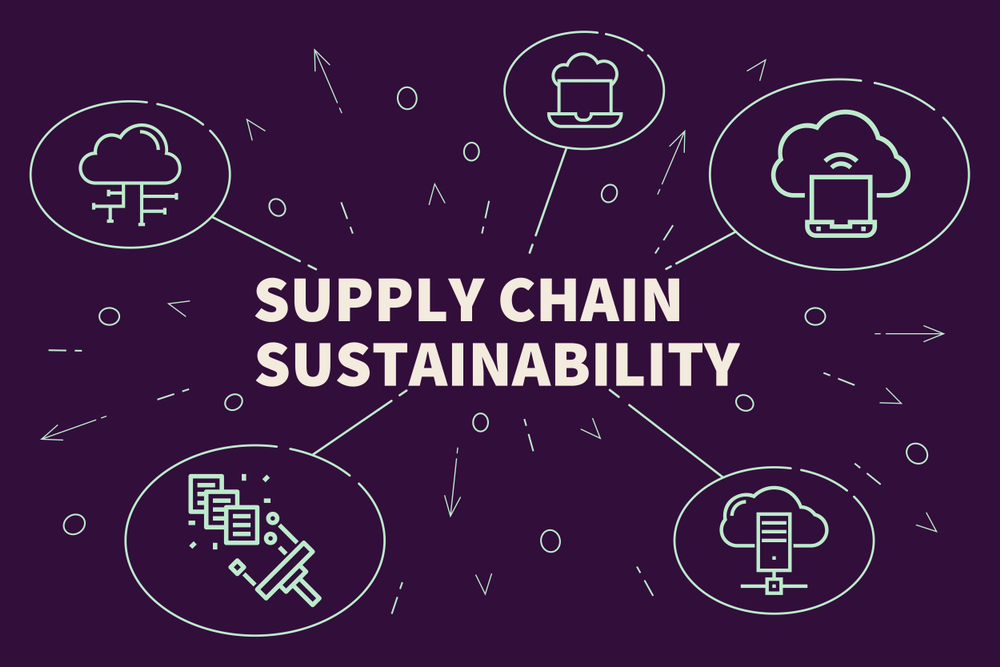“Sustainability” now appears inextricably linked with our present corporate culture. For some businesses, the concept may be a genuine, but still an ill-defined goal. For others, sustainability is seamlessly integrated into both long-term strategies and day-to-day business operations. Most companies can at least agree on its importance. A recent Oxford Economics survey found that 65% of companies have created a clear purpose statement around supply chain sustainability, and a further 23% said they are in the process of doing so.
While achieving sustainability is a laudable goal that can enhance a logistics company’s brand and even help its bottom line, defining this concept may be just as important. Different companies, unsurprisingly, may have widely different definitions when it comes to eco-friendly business practices. Companies seeking to achieve supply chain sustainability should keep a number of concepts in mind.
Clearly Define Goals and Objectives
Defining what it means for a company to achieve supply chain sustainability may be best answered by what a company’s goals and objectives are. Why do most companies practice some form of sustainability? According to the Oxford survey, this is increasingly for environmental, social and governance (ESG) reasons, with consumers, governments, and investors demanding that corporations be responsible environmental stewards.
These are of course very valid reasons to do so. There are also other different, valid reasons that could impact how a company approaches sustainability. Many consumers and communities remain leery of the idea of using recycled wastewater products, for example. Supply chain companies may choose to ignore these preferences and prioritize transporting recycled wastewater products to industrial and agriculture clients, who use these products as sustainable fuel sources. For those companies, achieving supply chain sustainability may not be dependent on consumer perception.
Engage Regularly with Governments World Wide
Governments can be of great help in connecting companies with important technological, nonprofit, and community partners who can help with sustainable supply chain implementation. They also can make considerable environmental demands that will differ from country to country. Germany, for example, links sustainability with human rights, and will soon start penalizing global logistics companies to the tune of several hundred thousand euros if they are found to be in breach of human rights or environmental rules. The Biden administration’s priorities at this time revolve around making supply chains more resilient and untangling the bottlenecks plaguing American ports and fulfillment centers.
Companies that ship products throughout the globe should engage with as many different governments as possible, to ensure their definition of “supply chain sustainability” is aligned with every nation they do business in.
Adopt a Holistic, Circular Approach
For many logistics companies, finding ways to achieve supply chain sustainability also helps lower Total Cost of Business (TCOB). Plastic pallets that weigh considerably less than wooden pallets help lower transport costs and the amount of harmful emissions a vehicle fleet discharges. iGPS plastic pallets are also four times more durable than wooden pallets and can be broken down and remolded into new pallets. Wood pallets often wind up in landfills, contributing to pollution after their useful lifespans.
While these practices are praiseworthy, businesses invested in achieving supply chain sustainability need to think beyond lightweight and recyclable shipping materials and approach the concept holistically. Increasingly companies are looking at circular supply chains that don’t just recycle products but re-use, refurbish, and re-manufacture everything from products to equipment and infrastructure. The ideal closed-loop sustainable supply chain will minimize resource inputs while also reducing waste, pollution, and carbon emissions.
Nearly all companies have committed to practicing some measure of sustainability in their business operations. Supply chain companies can benefit from clearly defined sustainability goals that suit their circumstances while also adopting a more holistic approach to environmental responsibility.
Companies committed to creating sustainable supply chains use iGPS plastic pallets for all their shipping needs. Our lightweight, recyclable plastic pallets help make greener supply chains and reduce the Total Cost of Business. For more information, contact us at 1-866-557-0047, email a specialist at switch@igps.net, or visit our contact page.



